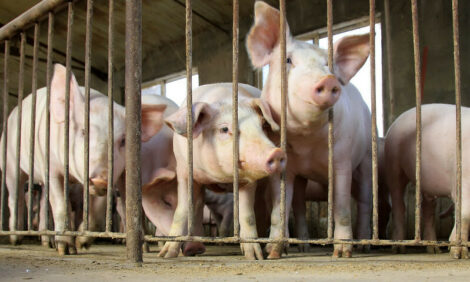



Model Helps Forecast Boar Fertility at Birth
US - The vast majority of sows are bred artificially with off-farm studs, so understanding the factors that influence sperm production and quality is important across the pig industry, according to the University of Missouri Extension.Boars might have great genetics, but they don't always produce enough semen for breeding, said Amy Desaulniers, University of Missouri senior from Pacific, Missouri, majoring in animal science.
Ms Desaulniers is participating in an internship programme in the College of Agriculture, Food and Natural Resources that funds undergraduates conducting research.
Her research project may help producers predict at birth whether boars would be able to provide semen with the volume and motility for mating.
To do this, she is breeding mice to determine what is called the ano-genital distance or AGD (distance between the penis and the anus) of male pups. The greater the distance, the greater the potential for optimal fertility, studies suggest.
She explained: "If we can distinguish at birth the higher-fertility and low-fertility mice, then we can transfer over to the swine industry so they would not castrate the boars that have the optimal AGD ratio," she explained.
Half of the pregnant female mice in the study were subjected to heat stress and the other half were kept at an optimum temperature. The AGDs of male offspring are measured from both groups to see the effect of uterine heat stress.
Ms Desaulniers said: "We know from data that during the summer months, boar fertility decreases, but we don't know how heat stress while in the uterus affects their later fertility."
Individual males with longer and shorter AGDs are placed in cages with several females to compare how many females they breed with and the resulting offspring.
Further tests involve measuring testes and taking semen samples as well as examining embryos during gestation.
If pre-natal heat stress decreases subsequent male reproductive performance in mice, then knowing this may serve as a model for the swine industry, she said.
Another aspect of the study involves feeding half the pregnant females in both groups a tea, made from a species of wormwood plant called Artemisia absinthium, that is thought to reduce heat stress in humans.
The CAFNR competitive one-year internships provide students $1,000 per semester and the opportunity to work with a faculty mentor on research in their field of study.
"These internships provide students a chance to experience research first-hand," said Tim Safranski, associate professor of animal science.






